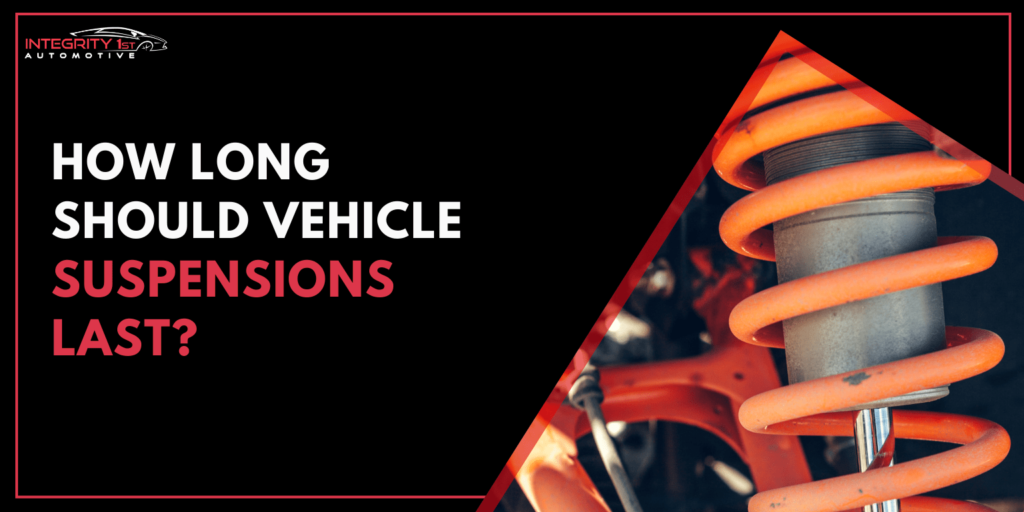
How Long Should Vehicle Suspensions Last?
If you are wondering how long your vehicle’s suspension system
A clogged air filter can harm engine performance. At Integrity 1st Automotive, our affordable engine air filter replacement service helps maximize engine efficiency, reduce emissions, boost power, and promote better fuel economy and longevity. So, get your air filter replaced today at Integrity 1st Automotive and keep your engine in top shape!
Engine air filters are very important for maintaining your vehicle’s engine performance. They prevent dirt, debris, and contaminants from entering the engine. Over time, air filters can become clogged, reducing fuel efficiency and causing unnecessary engine strain. That’s where we come in.
At Integrity 1st Automotive, we offer a vast range of car engine air filter replacement services designed to maximize your vehicle’s health and performance. During this service, we inspect your current filter to assess its condition and how badly it’s affecting your engine’s performance. Then, we replace it with a high-quality filter from trusted brands. So, don’t let a clogged air filter slow you down. Schedule your replacement with us today!
Our replacement service includes:
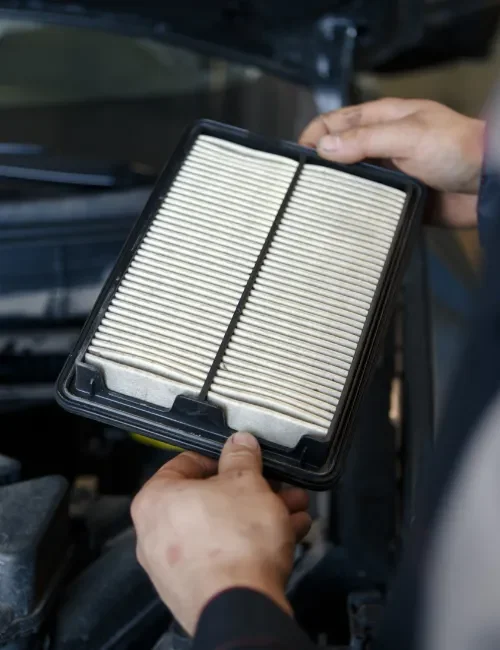
EXCELLENT
If your engine air filter becomes clogged or dirty, it can lead to various issues with your vehicle’s overall performance. Here are some common signs that indicate it’s time for a replacement:
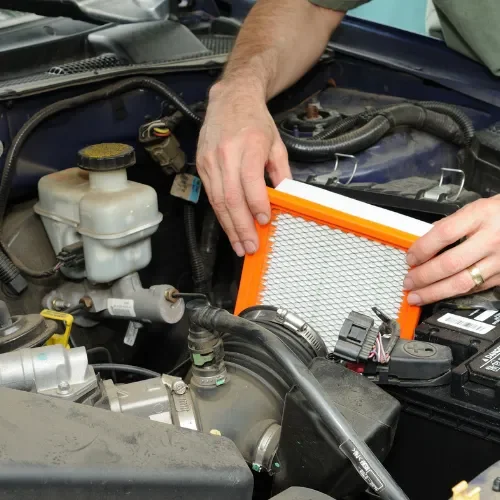
If you notice that your vehicle is consuming more fuel than usual, a clogged air filter could be the culprit. A dirty filter restricts airflow to the engine, causing it to work harder and burn more fuel.
If the engine light on your dashboard is on, it refers to a lot of underlying problems. One problem may be dirty air filters. Over time, dirty filters affect the engine, and that’s why the light goes on. Get a professional engine light diagnostics check to pinpoint and resolve the problem.
When the air filter is clogged, your engine may struggle to get the necessary amount of air. This can lead to jerky or uneven acceleration, making the ride uncomfortable and less responsive.
A restricted air filter can disrupt the air-to-fuel ratio, causing your engine to misfire. If you notice odd sounds or hesitation when you accelerate, it could be a sign that the filter needs replacing.
In some cases, a clogged air filter can lead to ignition issues. If the engine isn’t receiving enough air, it may struggle to start or have trouble remaining at a consistent speed, leading to rough starts and stalling.
When the engine air filter is blocked, your car may experience sluggish acceleration. Insufficient airflow can result in poor engine performance, causing the vehicle to take longer to reach higher speeds or respond to acceleration.
Visually inspecting the air filter is a quick way to check its condition. If it appears grey, dirty, or clogged with debris, it’s time to replace it to ensure proper engine airflow and performance.
Replacing your engine air filter is an essential part of vehicle maintenance, just like regularly changing your engine oil. Generally, it’s recommended to replace your car engine filter every 12 months or 15,000 miles, but this can vary based on factors like driving conditions, the make and model of your vehicle, and your environment. For instance, if you frequently drive in dusty or polluted areas, you may need to replace the filter more often.
That said, following your vehicle’s OEM maintenance schedule is important for maintaining top engine performance. The OEM schedule is specifically designed for your vehicle’s engine and accounts for the ideal timing and conditions under which the air filter and oil should be replaced. Neglecting to replace your air filter or change your oil on time can lead to reduced fuel efficiency, engine strain, and even damage to engine components.
By sticking to the recommended replacement intervals for both the air filter and oil, you ensure that your engine is receiving clean air and oil for combustion, helping to improve fuel economy, reduce emissions, and enhance engine longevity. Regular air filter replacement and oil changes also help avoid unnecessary repair costs down the road. Moreover, you should always check your owner’s manual for specific recommendations and consult with a professional if you’re unsure about the right time for a replacement.
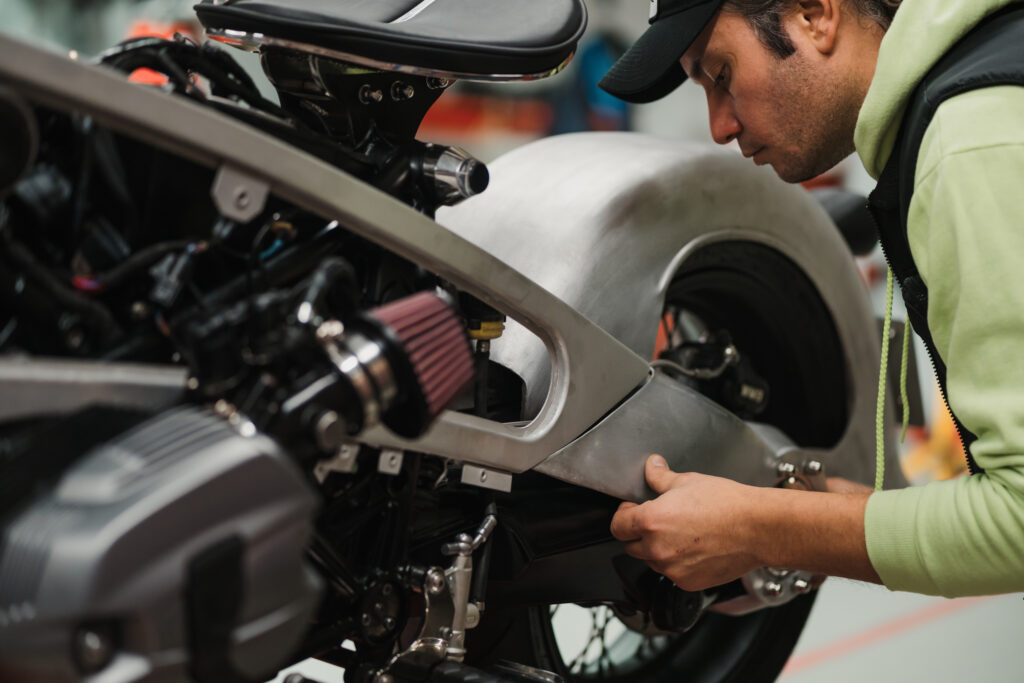
The average cost of an engine air filter replacement typically ranges from $59 to $78. Labor costs usually fall between $27 and $34, while the price for the parts can vary from $32 to $44, depending on the brand and type of filter. That said, several factors can affect the overall cost, including your vehicle’s make and model, the complexity of the installation, and the location of the service. Premium filters or specialty filters for high-performance or luxury vehicles may also increase the price. It’s always a good idea to compare prices and consult a trusted mechanic for accurate estimates.
Yes, an old or clogged engine air filter can cause a variety of engine problems. When the air filter becomes blocked with dirt and debris, it restricts airflow to the engine, leading to several issues. These issues include reduced engine performance, decreased fuel efficiency, and potential engine damage. A clogged air filter can also increase harmful emissions, cause the engine to overheat, and result in poor acceleration or engine misfires. To prevent these problems and keep your engine running smoothly, it’s essential to regularly check and replace the air filter. So, don’t wait until it affects your car’s performance, schedule a filter inspection today!

At Integrity 1st Automotive, we provide expert vehicle air filter replacement services to ensure peak engine performance. Here’s why we’re the trusted choice for all your auto care needs:
Our technicians are certified by the National Institute for Automotive Service Excellence (ASE). This means we have the expertise and skills to service all makes and models. Whether you drive a compact car, truck, or luxury vehicle, you can rely on us for high-quality air filter replacement.
We offer digital vehicle inspections with every service to keep you fully informed about your car's condition. Using advanced technology, our technicians perform a thorough inspection and provide you with a report, which includes photos, detailed findings, and recommendations.
We stand behind our work with a 3-year/36,000-mile warranty on all parts and labor. This warranty ensures that if anything goes wrong with your air filter replacement within the warranty period, we will cover the cost of parts and labor at no extra charge to you.
Schedule your vehicle's next service hassle-free with our convenient booking system. Expert care is just a click away.
Curious about repair costs? Receive a transparent estimate tailored to your needs. No surprises, just honest pricing.
Have questions or concerns? Our friendly team is ready to assist you. Reach out today for personalized assistance.
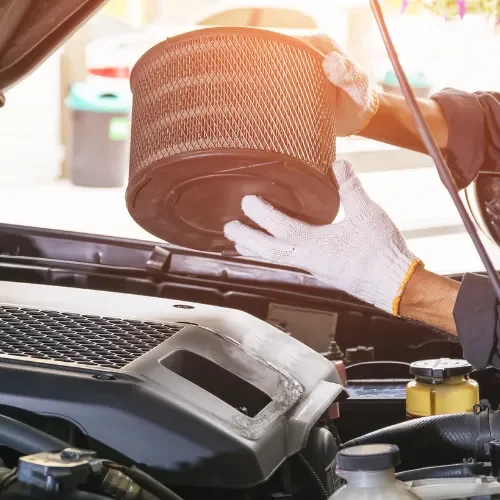
Just like any other filter, engine air filters trap particles like mold, pollen, and dirt to keep the engine clean and safe from harmful substances. Most cars have two filters: one that prevents polluted air from getting into the engine and the other that cleanses the air that moves into the cabin via a ventilation system called a cabin filter.
Although the job of an air filter is to remove the contaminants that reach your car’s engine, it offers many other benefits:
1) Clean air and fuel reach the engine to maximize the car’s performance.
2) It improves fuel economy due to optimum efficiency.
3) It increases the overall horsepower because clean air allows your engine to breathe properly.
An engine air filter is a vital component of your vehicle’s intake system. It acts as a barrier that prevents harmful contaminants such as dust, dirt, sand, and pollen from entering your engine. These contaminants can reduce engine performance, and fuel efficiency, and even cause serious damage.
Yes, an old or dirty engine air filter can lead to significant engine problems. When the filter becomes clogged with debris, it restricts airflow to the engine. This can result in:

If you are wondering how long your vehicle’s suspension system
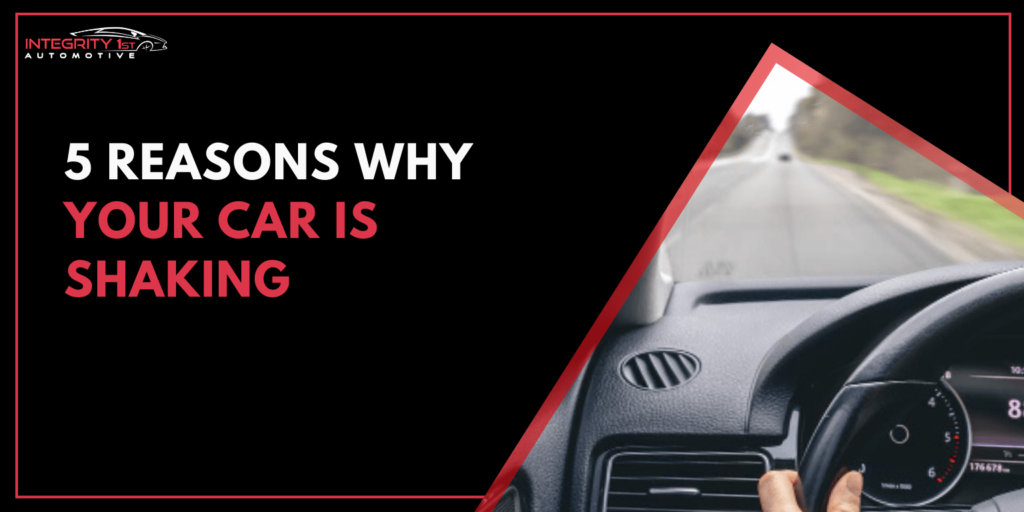
If you are asking yourself, “why does my car shake
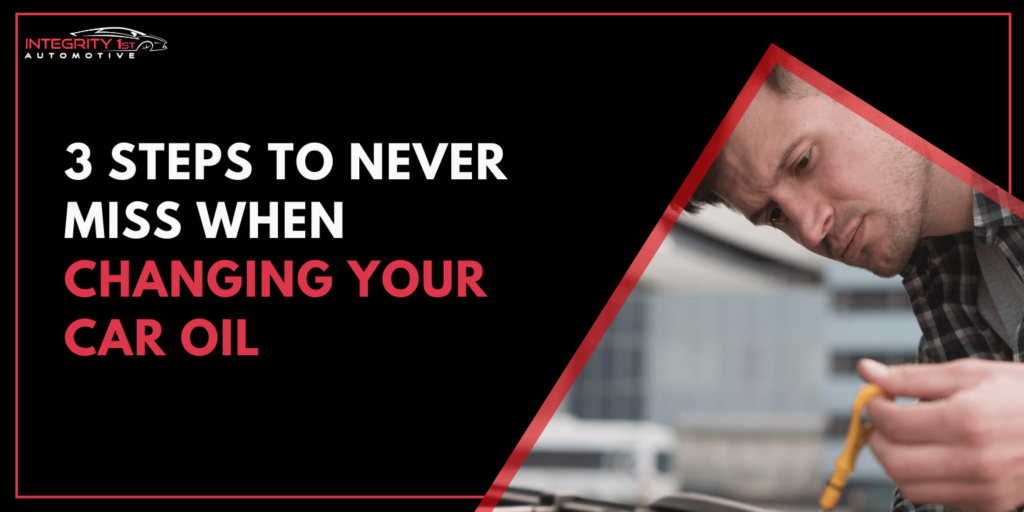
Did you know that failing to change your oil regularly

Integrity is doing the right thing, even when no one is watching. Whether you need an oil change, a new set of brake pads, a wheel alignment, or a diagnosis on that pesky check engine light – we do it all.
© 2025 Integrity 1st Automotive. All Rights Reserved.
Do You Like Coupons?
Sign up to receive 3 coupons each year!